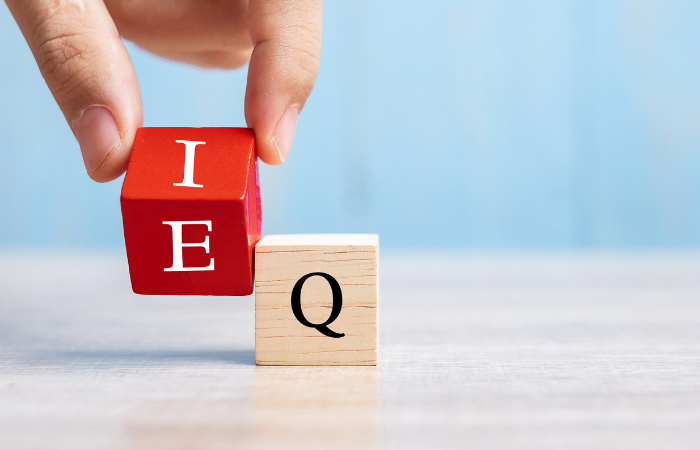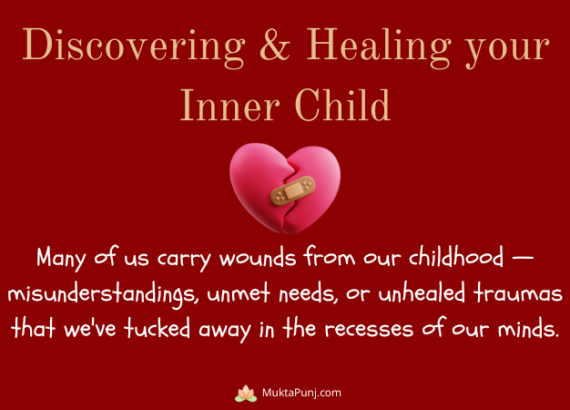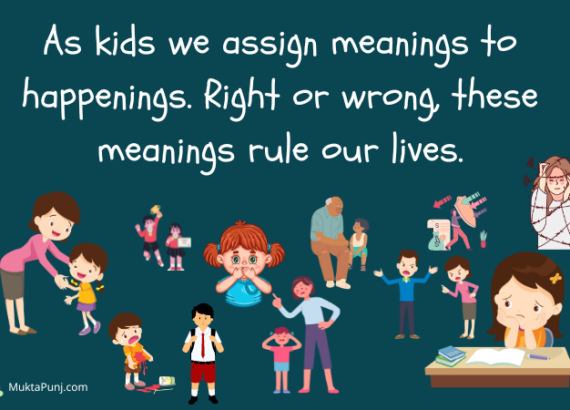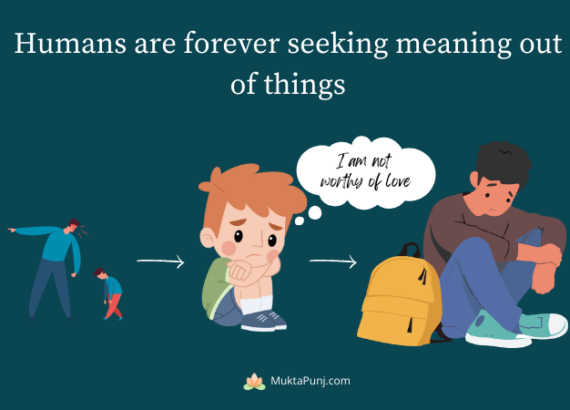The Only Emotional Intelligence Guide You’ll Ever Need

In today’s fast-paced and interconnected world, emotional intelligence (EI) has emerged as a fundamental skill that transcends traditional measures of intelligence. While you may have heard the term “emotional intelligence” thrown around, my intention through this article, is to provide a comprehensive exploration of the topic.
We’ll delve deep into the meaning of EI, its various components, how it compares to traditional intelligence (IQ), its undeniable importance in both personal and professional spheres, its pivotal role in leadership, effective strategies for enhancing EI, the enduring impact of our childhood and upbringing, the influence of culture and society, a look at some prominent figures in the field of EI, and finally, a thoughtful conclusion on why EI is, without a doubt, a cornerstone of success in today’s world.
1. The Meaning of Emotional Intelligence
Emotional intelligence, also known as EI or EQ (Emotional Quotient), is the ability to notice, understand, control, and make effective use of our own and other people’s emotions. It means being aware of your thoughts and emotions and using this knowledge to find your way through the complicated world of relationships and social interactions.
2. The Components of Emotional Intelligence
EI encompasses several key components, which include:
- Self-awareness: Understanding your own emotions and recognizing how they affect your thoughts and behaviors.
- Self-regulation: The ability to control impulsive reactions and manage your emotions in a healthy way.
- Motivation: The drive to set and work toward goals, even in the face of obstacles or setbacks.
- Empathy: The capacity to sense and understand the emotions of others, and to respond with compassion.
- Social skills: The capability to effectively handle relationships, encompassing communication, conflict resolution, and teamwork.
3. IQ vs. EQ: A Delicate Balance
It’s important to distinguish between IQ (Intelligence Quotient) and EQ. While IQ measures cognitive intelligence—our ability to learn, reason, and solve problems, EQ focuses on emotional intelligence—our capacity to recognize and understand emotions, both within ourselves and in others. While IQ may help you secure a job, EQ often determines how well you perform and succeed in that job. High EQ is linked to better leadership, enhanced teamwork, and overall personal and professional well-being.
Think of your IQ as a powerful engine that runs on your knowledge. It’s great for doing math, doing well on tests, and soaking up information like a sponge. But think of your emotional intelligence (EI) as the steering wheel that guides you through life. EI helps you learn more about people, connect with them on an emotional level, and build strong bonds with them. It’s like a personal emotional manager that helps you stay calm when worry and anger hit.
Your Benefits:
When you have a high EI, you become a ninja at solving problems and keeping relationships healthy. It makes you more empathetic and helps you put yourself in other people’s shoes, which leads to deeper relationships. You work well with others, converse well, and make everyone feel like they are important. Great leaders usually have high EI and use their knowledge of how people feel to inspire and encourage their teams.
EI helps you change and stay strong when life throws you a curveball. It gives you a safety net when things go wrong, so you can get back on your feet stronger and smarter. EI also makes you happier and healthier in general because it helps you make decisions that lead to a more satisfying life. EI smooths the way in relationships, whether they are with friends, family, or coworkers. This makes interactions easier and more satisfying. In the grand journey of life, IQ is the engine, but EI is the map that helps you navigate the twists and turns, make important connections, and find success and fulfillment in both your personal and professional life.
4. The Incontestable Importance of Emotional Intelligence
EI is a crucial skill that plays a pivotal role in nearly every aspect of our lives. It’s indispensable for:
- Enhancing Relationships: Through better understanding and management of emotions, we can build healthier and more fulfilling connections with others.
- Mental Health: High EI assists in regulating stress and anxiety, contributing to better mental well-being.
- Career Success: Often the difference-maker in leadership and workplace relationships, EI can significantly impact one’s professional trajectory.
5. Emotional Intelligence: The Compass for Effective Leadership
Effective leaders often possess high emotional intelligence. This quality enables them to empathize with their team members, communicate effectively, and make decisions that consider emotional factors. Leaders with strong EI create positive work environments, motivate their teams, and lead with authenticity.
When leaders have a lot of Emotional Intelligence (EI), they are much better at what they do. The main reason for this is that EI gives leaders a wide range of interpersonal and intrapersonal skills that are important for leading teams well. Leaders with high EI are great at getting their teams to understand each other and trust them. They build strong ties, which are important for working as a team and having a good time at work. Also, they are good at handling and resolving disagreements by using empathy and diplomacy to calm things down.
Empathy is one of the most important parts of emotional intelligence (EI). It helps leaders connect with their team members on an emotional level, which boosts their motivation and job happiness. Leaders with high EI can inspire and motivate their teams, bringing the goals of each person and the business together. Also, they are able to change with the times and help their teams get through shifts well. Because they know how to deal with stress, they can stay calm and make good decisions even when they are under a lot of pressure. Their careful decision-making process takes into account both rational and emotional factors.
Example:
Meet Mrs. Anderson, who has been teaching for a long time and has great EI. Sam is a student in her class who has been acting out and having trouble with the lessons because of problems at home. Sam was acting badly, but instead of scolding him, Mrs. Anderson saw that he was upset and talked to him after class. She asked him kindly how he was feeling and how he was doing, which made him feel important and understood. Then, she worked with the school psychologist to help Sam in other ways.
Mrs. Anderson cared not only about what her children learned in school, but also about how they felt. She made sure that every kid in her class felt safe and cared for. This caring and helpful approach not only helped Sam, but it also made the classroom a better place for everyone, which helped them all learn more. Mrs. Anderson was able to connect emotionally with her students because she had a high EI. This made her a great teacher who goes above and beyond to create a safe and supportive learning environment.
High EI leaders don’t just deal with conflicts when they happen; they also try to avoid them by noticing emotional undercurrents in the team and taking care of problems before they happen. During crises, they lead their teams and give them mental support, which helps them get through hard times.
Example:
In a busy marketing department, tension had been building up for weeks. The team was working on a critical project with tight deadlines, and stress levels were running high. Sarah, the team leader, was known for her exceptional EI. She sensed the emotional undercurrents within her team and noticed that some team members were becoming increasingly frustrated with the workload and the pressure.
Instead of waiting for conflicts to erupt, Sarah proactively addressed the situation. She scheduled a team meeting but framed it as a casual check-in. During the meeting, she encouraged team members to express their feelings and concerns openly. Sarah listened actively, showing empathy and understanding toward each team member’s perspective.
As a result of this open dialogue, team members felt heard and valued. Sarah then proposed some adjustments to the project plan, redistributing tasks more evenly and providing additional support to those who needed it. She also organized team-building activities to relieve stress and boost team morale.
Sarah’s high EI allowed her to perceive the emotional undercurrents within her team and take preventive measures to avoid conflicts. Her proactive approach not only diffused the tension but also strengthened trust and collaboration among team members. Ultimately, the project was successfully completed with a more motivated and cohesive team, all thanks to Sarah’s leadership with high EI.
Leaders with high Emotional Intelligence produce good places to work, encourage loyalty and productivity, and make a big difference in the success of their organizations as a whole.
6. Strategies for Improving Emotional Intelligence
The good news is that unlike traditional intelligence, EI is not set in stone. You can actively work on enhancing your emotional intelligence through:
- Self-Reflection: Regularly assess your emotional responses and behaviors, digging deep to uncover patterns and triggers.
- Active Listening: Pay close attention to others’ feelings and perspectives, striving to understand their emotional experiences.
- Empathy Exercises: Practice putting yourself in others’ shoes, seeking to grasp their emotions and viewpoints.
- Stress Management Techniques: Learn and employ stress management techniques to stay calm and collected in high-pressure situations.
7. The Formative Role of Childhood and Upbringing in EI Development
Our childhood experiences and upbringing can significantly influence the development of our emotional intelligence. Children who grow up in emotionally supportive environments tend to develop higher EI. They learn to identify and manage their emotions in a healthy way. Conversely, those exposed to neglect, abuse, or emotionally neglectful environments may struggle with emotional regulation, empathy, and social skills later in life.
8. The Influence of Culture and Society on EI Development
The development of emotional intelligence is also influenced by culture and society. Different cultures have varying norms regarding emotional expression and communication. Understanding these cultural differences is essential for enhancing EI in an increasingly diverse world. Cultural competence is a significant component of emotional intelligence, as it involves recognizing, understanding, and respecting the emotional nuances of different cultural backgrounds.
9. Noteworthy Figures in the Field of EI
Several prominent figures have made significant contributions to the field of emotional intelligence. Daniel Goleman’s groundbreaking work brought EI to the public’s attention, emphasizing its significance in success. Psychologists Peter Salovey and John Mayer structured EI as a scientific field, identifying its components. Travis Bradberry and Jean Greaves made EI practical with “Emotional Intelligence 2.0,” while Richard Boyatzis emphasized its role in resonant leadership. Annie McKee further explored EI’s impact on leadership. Marc Brackett championed EI in education, and Paul Ekman’s work on facial expressions contributes to emotional awareness. Together, these figures have shaped how we understand and utilize EI in personal, professional, and educational contexts.
10. Conclusion: Unlocking the Power of Emotional Intelligence
In a world where relationships, both personal and professional, form the bedrock of success, emotional intelligence stands out as a transformative skill. It empowers individuals to navigate the complexities of human interactions, lead effectively, and lead a more fulfilling life. As we’ve explored in this article, EI is a rich tapestry woven from the threads of self-awareness, self-regulation, motivation, empathy, and social skills.
Understanding the meaning and components of EI, comparing it to traditional IQ, recognizing its importance, and learning how to improve it represent critical steps toward harnessing the power of emotional intelligence. Furthermore, acknowledging the profound impact of our childhood, upbringing, culture, and society helps us appreciate the multifaceted nature of EI and adapt it to diverse contexts.
In a world where empathy and emotional understanding are more critical than ever, emotional intelligence serves as the compass that guides us toward personal and professional success, enriching our relationships and fostering a brighter, more emotionally connected future. It is the key that unlocks the doors to a world of deeper connections, heightened self-awareness, and more meaningful interactions.
In closing, let us embark on this journey of self-discovery and EI enhancement together, recognizing that the rewards it offers extend into every facet of our lives. As you cultivate your emotional intelligence, you’ll find yourself better equipped to thrive in an increasingly interconnected and emotionally rich world. Embrace the power of EI, and watch as it transforms not only your life but the lives of those around you.











Comments
Trackbacks & Pingbacks
[…] This unique approach helps regulate the body’s stress response system, leading to a decrease in emotional distress and an increase in overall well-being. […]
[…] What they had was – oodles of self-belief. What I have come to call – Quiet Self-Esteem. Self-esteem is not an outward show of self-assuredness. It is an inner knowing of one’s own worth. […]
[…] there, bookworms! If you’re eager to boost your emotional intelligence (EI) and sharpen those empathy skills, you’ve come to the right place. I’ve rounded up the 7 […]
[…] The Only Emotional Intelligence Guide You’ll Ever Need […]
[…] The Only Emotional Intelligence Guide You’ll Ever Need […]